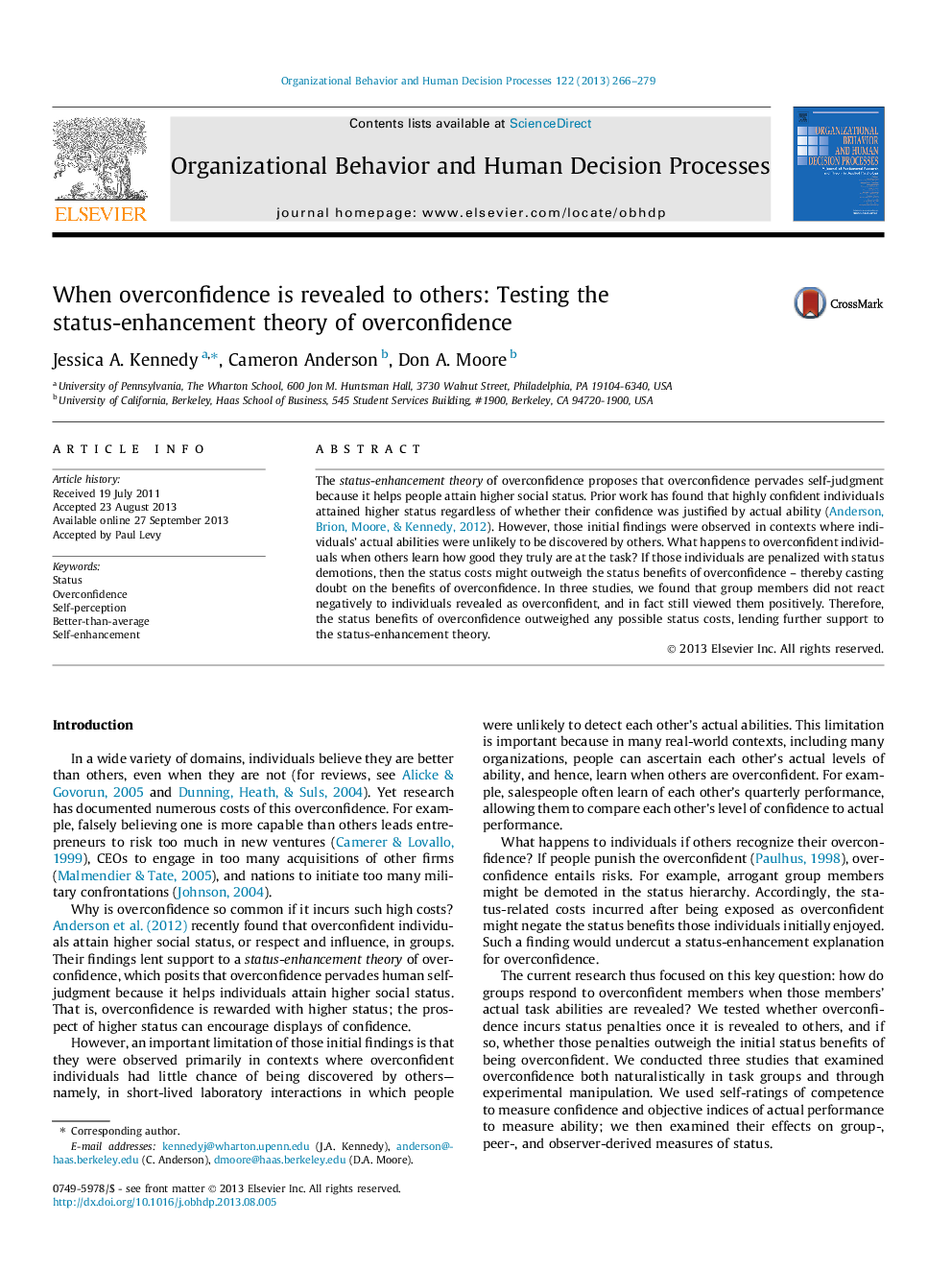| Article ID | Journal | Published Year | Pages | File Type |
|---|---|---|---|---|
| 10439871 | Organizational Behavior and Human Decision Processes | 2013 | 14 Pages |
Abstract
The status-enhancement theory of overconfidence proposes that overconfidence pervades self-judgment because it helps people attain higher social status. Prior work has found that highly confident individuals attained higher status regardless of whether their confidence was justified by actual ability (Anderson, Brion, Moore, & Kennedy, 2012). However, those initial findings were observed in contexts where individuals' actual abilities were unlikely to be discovered by others. What happens to overconfident individuals when others learn how good they truly are at the task? If those individuals are penalized with status demotions, then the status costs might outweigh the status benefits of overconfidence - thereby casting doubt on the benefits of overconfidence. In three studies, we found that group members did not react negatively to individuals revealed as overconfident, and in fact still viewed them positively. Therefore, the status benefits of overconfidence outweighed any possible status costs, lending further support to the status-enhancement theory.
Related Topics
Social Sciences and Humanities
Business, Management and Accounting
Marketing
Authors
Jessica A. Kennedy, Cameron Anderson, Don A. Moore,
